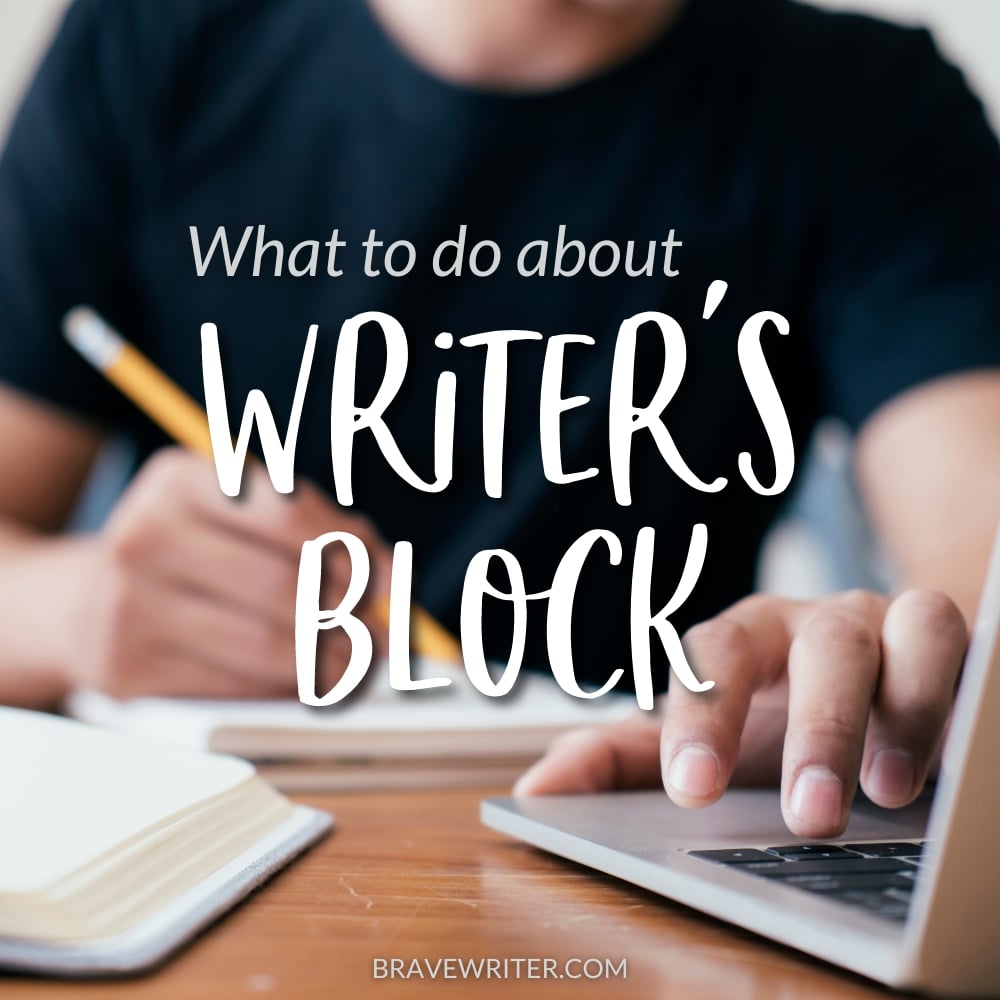Writer’s Block: 6 Tips to Help You Overcome Feeling Stuck

Everyone gets it.
You do.
Professional writers do.
I do, regularly.
What is writer’s block?
It’s the feeling of paralysis that hits you when faced with a blank page or blank screen. It’s that stuck moment where you can’t move past the last sentence. It’s the lurching sensation in your stomach. It’s the headache that sets in. It’s the urge to check email, start dinner, change laundry loads or pick up the phone to call your sister.
A lot has been written about writer’s block because it is such a universal problem.
Yet we rarely suspect that our kids are suffering from writer’s block. What is it that makes us assume that they are lazy, resistant, disobedient, unwilling, or bad writers when they say they have nothing to write about?
I suggest we reframe our thinking and ask ourselves, “Is my child suffering from writer’s block?” What if we make a huge leap and assume that the obstacle the child is facing is one that is common to writers everywhere of every age and skill level? Perhaps we will be moved to help “unblock” our young writers rather than feeling that we are somehow failing as writing instructors.
Writer’s block is nothing more than the sense that the attempt to produce writing will fail, will fall short of expectations.
Writer’s block is nothing more than the sense that the attempt to produce writing will fail, will fall short of expectations. These expectations come from lots of sources: teachers, parents, the publisher, the editor, the best friend, an Internet audience, customers, and perhaps the harshest critic of all: the self. We are not just blocked, we are afraid.
Here are a few tips for helping your kids through writer’s block:
- Be kind.
Sympathize. Relate your own writing struggles. If you regularly struggle with writing yourself, choose to take the same risk as your child. Write together, at the same time. Pick a freewriting prompt and work through it in front of your child. Be sure to include the kinds of comments that you feel at the time (this is hard, I don’t like this, I wish I had something to say) so that your child knows it’s okay to do the same. - Get physical.
Rub your child’s shoulders, ask her to stand up and stretch, to flex and straighten fingers. If it helps, go for a brisk walk outside or take a few jumps on the trampoline. Run around the yard with the dog. Then come back to writing. - Change locations.
Go to a coffee shop and write there. Climb a tree and write while sitting in the branches. Lie on the floor and write. Go outside (if it’s a nice day) and write while sitting on a blanket. Write next to a window. Write in the basement. Write after standing on your head for thirty seconds. - Use your eyes.
If words won’t come, spend time thumbing through a magazine looking at pictures. Pull out an art book and look at the paintings. Look out a window. Walk through the house and find something new to see (something you haven’t noticed in awhile). Flip through a photo album. Hook up to the Internet and click through a website devoted to images. Look at the comics in your newspaper. Sometimes words will follow visual stimulation. - Admit your feelings.
The best way out is through. If you can’t get beyond the feeling of stuckness, it sometimes helps to say so and explore why or what is in the way. Some kids need to do this verbally (to write it out feels like torture). But for other kids, writing their frustration leads to the writing they do want to do. So allow for “venting” before serious writing. - Tomorrow’s another day.
Scarlett O’Hara may have been right. Sometimes it’s better to wait for the day to pass before writing again. Try tomorrow.
Of course for chronic writer’s block, it may be that your child is recovering from previous bad experiences with writing. If that is the case, the best way out of that jungle is to retreat from writing to dictating. He talks and you write down what he says. He’ll need to rebuild his sense that what he has to say has value and deserves to be recorded and enjoyed.
Tags: writers block



















[…] brave writer discovers that writer’s block is a condition that plagues even the most prolific writers, and then writes to unblock (or goes for […]